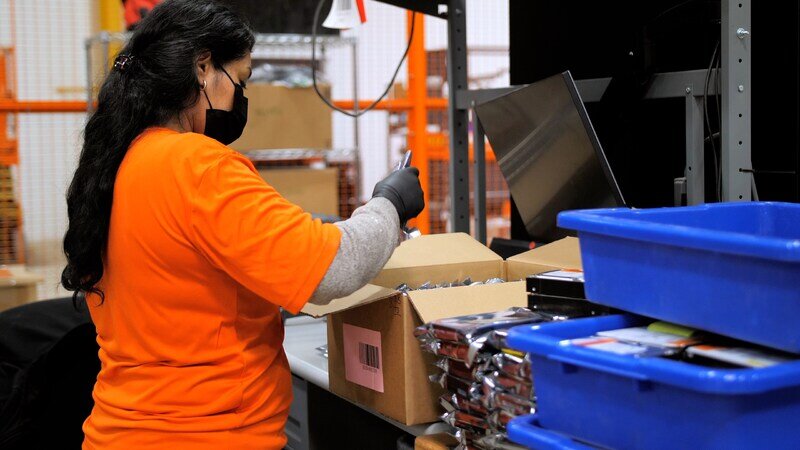A Look Inside SK TES: Resurfacing Technology for a Sustainable Future
In a world increasingly reliant on technology, the lifecycle of electronic devices has become a pressing concern. As organizations replace outdated equipment, many computers and laptops find their way to SK TES, a facility in Fredericksburg, Virginia, specializing in the refurbishment and resale of used devices. This article dives into the intriguing process of assessing, refurbishing, and repurposing technology for a sustainable future.
The Assessment Process
Upon arrival at SK TES, each device—from desktops to laptops—undergoes meticulous scrutiny. Kent Green, the site manager, emphasizes the importance of starting with a thorough examination: “Many a concealed drive finds its way into this line.” It is not uncommon for devices coming from large corporations to hide additional storage drives inside them. These could be unauthorized USBs or makeshift solutions installed by IT departments, leaving many managers astonished by what gets uncovered during the assessment.
Once inspected, each device’s specifications—including CPU, memory, and hard disk size—are recorded. This information helps in creating an asset tag, which is vital for tracking and ensures transparency in the refurbishment process.
Rating and Categorization
After being wiped clean of data and identified, devices receive a three-character rating system—such as “A-3-6”—which reflects their functionality, cosmetic appearance, and component value. The facility then sorts these devices based on market needs and trends, directing them towards resale in either wholesale, retail, component harvesting, or recycling.
This structured rating system provides a glimpse into the operational efficiency at SK TES. “Devices that are cleared for resale are treated with utmost care to ensure quality,” Green notes, highlighting the commitment to delivering refurbished products that meet consumer expectations.
The Refurbishment Line: Beyond Basics
Devices deemed suitable for retail move into a specialized section of the facility where a series of automated checks are conducted. Workers utilize automated software to test various functions: they play sounds through the speakers, check for responsiveness of every keyboard key, and even assess battery health, ensuring they hold at least 80% of their original capacity.
Among the fascinating innovations in the refurbishment process is the application of full-body adhesive skins that can rejuvenate the appearance of laptops. Certain brands, including Lenovo, Dell, and HP, produce models so common in corporate environments that custom skins have been designed to match their finishes perfectly. The application process involves careful precision, transforming a potentially worn-out laptop into a nearly pristine device.
Sustainability and Economic Impact
The refurbishment of laptops and desktops not only aids businesses in reducing electronic waste but also contributes significantly to sustainability efforts. By extending the life of these devices, SK TES promotes a circular economy model that minimizes landfill waste while providing consumers with more affordable technology options.
“Our goal is to make quality tech accessible, reducing both waste and costs for consumers,” shares Green, underlining the dual benefits of their operations. Reselling refurbished devices helps businesses save money while offering eco-conscious alternatives to buying new equipment.
Conclusion: A Model for the Future
The work being done at SK TES reflects a growing recognition of the importance of sustainable practices within the technology sector. As companies become more aware of their environmental impact, models like SK TES provide a blueprint for merging profitability with responsibility.
Through rigorous assessment, innovative refurbishment techniques, and a commitment to quality, SK TES is not just changing the way we think about used technology; it is also paving the way for the future of sustainable computing. The implications of this approach could resonate far beyond the walls of the Fredericksburg facility, influencing tech industries nationwide towards a smarter, more responsible use of resources.









